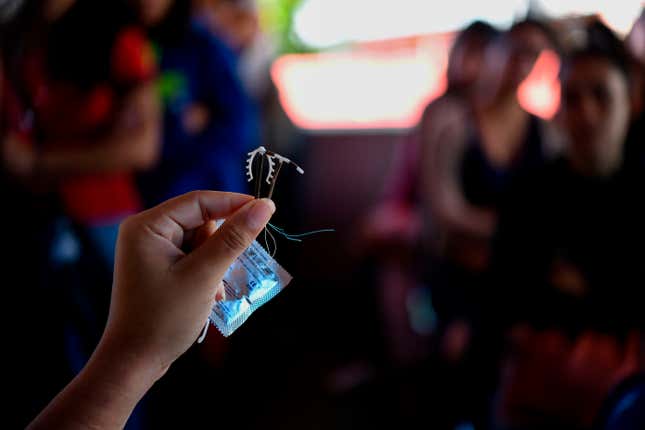

Women in Venezuela are having children they don’t want or can’t afford because millions of them can’t access even the most basic methods of birth control, in a country where abortion is illegal.
According to the New York Times, Venezuela’s economic crisis has made contraceptives scarce, including in major cities, where pills, patches, and implanted devices can be “nearly impossible” to find. If they are available, it’s usually at a price that’s prohibitively high: In the country’s capital, a three-pack of condoms costs three times Venezuela’s monthly minimum wage; oral contraceptives cost more than twice as much as condoms (and for just one month’s supply); and long-acting forms of contraception, like IUDs, are priced at more than 25 times the minimum wage. The few nonprofit clinics that provide free birth control are overburdened, and women sometimes sleep outside hoping to beat the crowds, the Times reports.
-

-

-

-

-

-

-

-

-

-

-

-

-

-

-

-

-

-

-

-

-

-

-

-

-

-

-

-

-

-

-

-

-

-

-

-

-

-

-

-








































